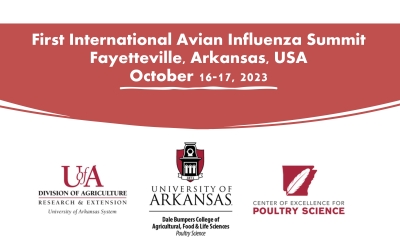Biosecurity: A holistic One-Health concept for enhancing the health, welfare, and productivity of commercial poultry - A point of view
Authors: Susano M. Jaramillo
GMPC TOP
2023.
vol. 3, Iss. 1
pp:0-24
Doi: https://doi.org/10.51585/gtop.2023.1.0027

Abstract:
The poultry industry plays a pivotal role in meeting global demands for protein-rich food. However, it faces significant challenges due to emerging infectious diseases, environmental concerns, and ethical considerations surrounding animal welfare. This abstract presents a comprehensive perspective on the integration of biosecurity measures within the framework of One Health, with the aim of enhancing the overall health, welfare, and productivity of commercial poultry operations. The concept of One Health emphasizes the interconnectedness of human, animal, and environmental health. Applied to the poultry industry, this approach acknowledges the potential transmission of pathogens between animals, humans, and the environment, emphasizing the need for coordinated strategies. Biosecurity emerges as a central component, encompassing a multifaceted set of preventive measures designed to mitigate risks and safeguard the health of poultry populations. Key elements of an effective biosecurity program include physical barriers, hygiene protocols, vaccination strategies, and rigorous disease monitoring and surveillance. These measures are bolstered by the implementation of strict quarantine protocols for newly introduced birds, as well as restricted access to farms and controlled movements within the premises. Moreover, biosecurity extends beyond the farm gate, involving collaboration with veterinarians, government agencies, and industry stakeholders to establish best practices and response plans. Improving the welfare of commercial poultry is another critical aspect of this holistic approach. This involves providing optimal living conditions, access to clean water, balanced nutrition, and appropriate space allowances. Enrichment strategies, such as environmental enhancements and behavioral opportunities, contribute to the overall well-being of the birds, reducing stress and enhancing their natural behaviors. Furthermore, the integration of biosecurity and One Health principles positively impacts the productivity of commercial poultry operations. Reduced disease incidence leads to lower mortality rates and increased flock performance, translating to higher production efficiency. Additionally, improved welfare conditions contribute to reduced behavioral issues, resulting in better growth rates and feed conversion ratios. In conclusion, the adoption of biosecurity measures within the framework of One Health offers a comprehensive strategy for enhancing the health, welfare, and productivity of commercial poultry. This integrated approach not only mitigates the risks posed by emerging diseases but also addresses environmental and ethical concerns associated with poultry production. By embracing this holistic concept, stakeholders in the poultry industry can achieve sustainable and responsible production practices, ensuring the long-term viability of this crucial sector in global food security.
Keywords:
Influenza, Biosecurity, One-Health, Stakeholders, Poultry industry, Hygiene protocols, Vaccination strategies, Monitoring and surveillance
Statistics:
Article Views: 956
PDF Download: 14